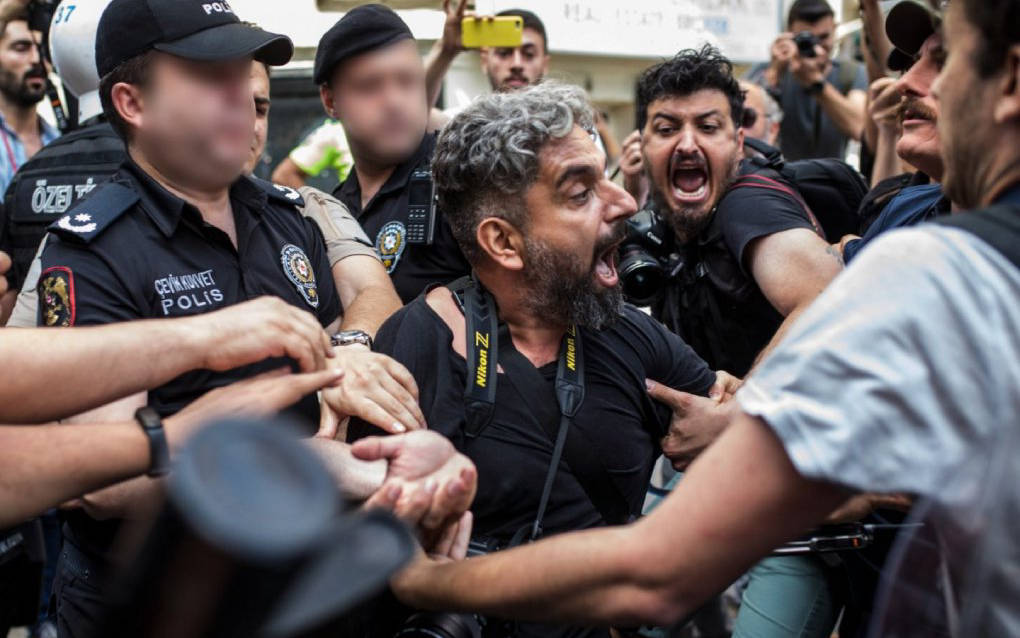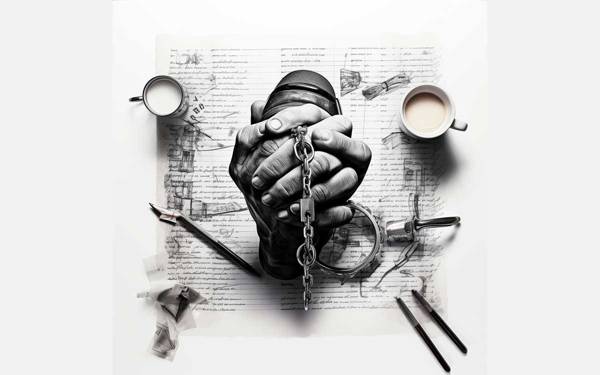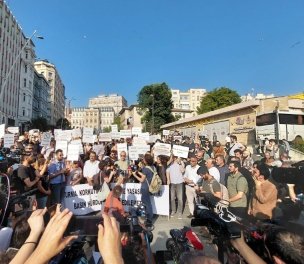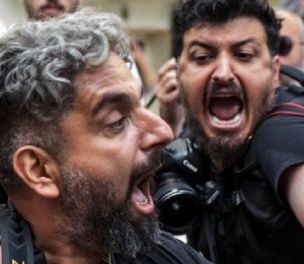The hearing of the case where AFP's photojournalist Bülent Kılıç is being charged with offenses against police officers despite it has been proven in another lawsuit that there has been police violence against him during the event will be held in İstanbul tomorrow (October 26.)
Kılıç is an experienced journalist who has worked in various regions of the world, from Ukraine to Afghanistan, Syria to Greece, from Nagorno Karabagh to Malaysia. He is a photojournalist for Agence France-Presse (AFP).
His work has earned him prestigious awards, including recognition at the World Press Photo and Visa Pour l’Image. In 2014, Time and The Guardian selected him as the Photographer of the Year, and he was nominated for the Plutzer Award.
Despite his presence in diverse war and conflict zones around the world, it was only in Turkey that he experienced police violence and was detained.
It was during the 2021 Pride Week. Bülent Kılıç wanted to cover the Pride March on June 26. However, the police detained him by forcing him to the ground and choking him on Mis Street in Taksim, İstanbul. Later, in interviews he would give, Kılıç would say, "I narrowly escaped a life-threatening situation."
Journalists united in solidarity. Three days later, they marched from Babıali (Sublime Porte) to the Istanbul Governorate. Simultaneous protests were held in Ankara and Izmir. They demanded an end to police violence and harassment against journalists. However, it did not stop. One year later, in 2022, during the Pride March in Istanbul once again, the police did not allow Kılıç to perform his profession and detained him in Cihangir.
In 2021, Bülent Kılıç not only filed a complaint against the police officers who assaulted him but also sought compensation for his broken camera.
The 8th Administrative Court of Istanbul ruled that the police officers who intervened had used 'excessive force' and ordered a total compensation of 30,095 lira to be paid to Kılıç.
However, in the criminal complaint, the prosecutor decided not to pursue charges against the two identified police officers. On the same day, Bülent Kılıç was charged with 'resisting an official in the performance of their duties' and 'openly insulting a public official in connection with the performance of their duties.'
The first hearing of this case will be held tomorrow at the Istanbul 19th Criminal Court in Çağlayan. There has been a call for support from civil society for this trial.
Despite the ruling in the administrative court in his favor, Kılıç says, "I'm not very hopeful about this trial." As an example, he points to another news article:
Two days ago, there was a news story. In Afyon, a physics teacher wanted to protect the rights of their students in the face of continuous mock exams at the high school. First, they received a reprimand. Then, they were dismissed. When they tried to explain their situation to the governor, they were beaten by security and the police. On top of that, the physics teacher is the one who faced legal action. Mine is quite similar to this.
I became the one on trial, not the police. It's like a scene from the usual comedy. People are painstakingly seeking justice, trying to prove they are right. Despite everything is clear, I am the one who is subjected to violence, I end up being the one detained, and I stand trial.
Moreover, even though everything is visible in the camera recordings, the police takes the courage to come out and claim they were victims of violence. The prosecutor disregards my criminal complaint and takes the police seriously. These things are happening despite the administrative court ruling in my favor and ordering compensation,.
One court can declare me a victim, while another court can accept the police's claim of being victims and put me on trial.
I have had many discussions with security forces and armed persons in various regions around the world. However, I experienced such violence for the first time from the police of my own country. The police can justify themselves with this case, but it's the culture of impunity in Turkey that gave them the audacity.
Ultimately, it's a democracy issue in Turkey. We all know this. What I experienced is not so important while there are dozens of journalists in detention and journalists facing police violence in the streets every day, .
But I hope that a favorable outcome for all journalists comes out of this case, and it sets a precedent."
(HA/PE)








sa.jpg)

